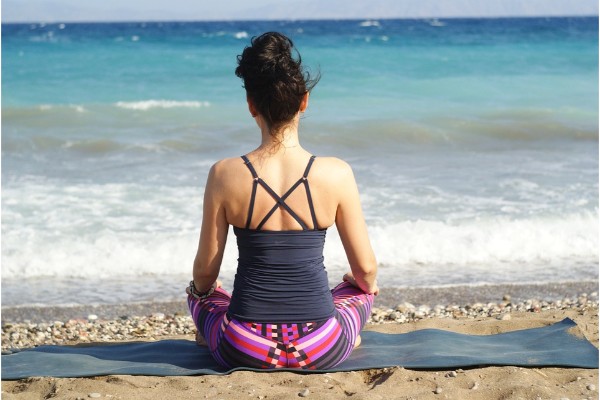How Long to Meditate? How Often Should You Meditate?
Meditation, which has grown in popularity recently, can help us improve both our mental and physical health. As a matter of fact, 14.2% of Americans had tried meditation. Anxiety, stress, and emotion management can all be improved with regular meditation, according to research. In order to feel centered and at ease, more and more people are starting to feel dependent on their meditation practice.
But what happens when our ability to meditate is restricted by the demands of daily life? How big of a deal is it if you miss a day? Do you need to meditate for five minutes a day to reap the rewards? Are ten necessary? Sadly, there is no easy answer to this question, but there are a number of useful hints available regarding how frequently and for how long to meditate.
Table of Contents
How Long to Meditate as a Beginner?
A novice may want to begin by practicing meditation for at least five minutes each day. You can begin with just five minutes to get used to it. Additionally, it will enable you to commit to your meditation routine without putting undue stress on yourself, which makes meditation simpler for beginners and helps reduce stress levels.
You’ll also be able to learn when to meditate by starting out with just five minutes per day. If you think five minutes is too long, try starting with less time and gradually increasing it by one minute each week until you reach your goal.
How Long to Meditate to See Results?
A 2018 study that was published in Behavioural Brain Research found that meditating for 13 minutes a day for eight weeks reduced negative mood state and increased attention, working memory, and recognition memory, as well as reduced state anxiety.1 The study also discovered that participants who meditated for eight weeks saw more significant results than those who meditated for four weeks.
The consensus appears to be that you should aim for at least 10 minutes a day of meditation, even though it is not an exact science, in order to experience its benefits. But since everyone reacts differently, it’s important to experiment with longer meditation sessions if 10 minutes does not seem to be helping you.
How Long to Meditate for Anxiety?
The meditation practice known as mindfulness-based stress reduction (MBSR) may be beneficial for those who struggle with anxiety. This eight-week program was created by Jon Kabat-Zinn and consists of daily 45-minute sessions to help you manage stress and anxiety.
MBSR was the subject of a systematic review that was published in the Journal of Psychosomatic Research in 2015. The results of the study pointed to significant effects on stress, a range of effects on anxiety, depression, distress, and quality of life, and minimal effects on burnout.
MBSR requires participants to dedicate 45 minutes per day to mindfulness practice, which may not be feasible for all individuals, despite the positive study results. Another strategy is to break up your 45-minute practice session into smaller 10-minute sessions spread out throughout the day.

How Often Should You Meditate?
It is entirely up to you how frequently you should practice meditation. Some people find that sitting once a day is beneficial, while others prefer to sit for a brief period in the morning and again in the evening.
Sitting multiple times a day can help you control overthinking and keep your mind relaxed and stress-free all day. Before incorporating a new strategy into your daily routine, it’s crucial to test out a few options and see what works for you.
One thing is certain: Don’t try to force anything. Teachers’ and traditions’ views vary. Checking in with yourself and your needs is the key to meditation; pushing past your comfort zone is not.
When Should You Meditate?
Your schedule and other factors will influence the ideal time of day to meditate. Choose a time when you’ll feel most relaxed and likely to stick to your routine.
Is it preferable to practice meditation right when you wake up? Depending on the type of meditation you’re attempting to practice, yes and no.
For two reasons, morning meditation is preferred by many people: first, it’s a nice way to start the day by being mindful and practicing self-care; second, it gives you some alone time before getting started with your daily routine.
However, because it’s a quieter time, you might prefer to meditate in the late afternoon or at night. Additionally, it serves as a counterbalance to all the information you have been absorbing throughout the day.
Overall, there are advantages to scheduling your meditation sessions throughout the day. See what works best for you among the various times you try.
A Regular Meditation Helps Lengthen the Time
You will become more adept at maintaining present-moment focus if you regularly practice meditation each day. So it makes sense that if you meditate every day, eventually you’ll start meditating for longer periods of time.
The key to getting the most out of meditation is to make it a habit rather than practice for long periods of time. A 10-minute meditation session might be helpful if you have trouble falling asleep at night. Before going to bed, it is not necessary to spend an hour doing it.
You’ll be able to stay present during a hectic day and experience better overall health if you meditate regularly. So if you want to increase the amount of time you spend meditating, think about making this a regular habit. After all, while it’s great to stay present alongside an app, life can be much more beautiful when you stay present in the moment when with family and friends. Keep practicing even if your thoughts start to wander because doing so will only help you improve your ability to be present at the right time, which is what matters most.
Conclusion: Regularly Practice Meditation
If you are just starting out with meditation, there’s no need to feel pressure to do it for hours every day. The benefits of meditation can be felt by your body and mind in just 10 minutes, whether you set aside that time during your lunch break or right before bed.





